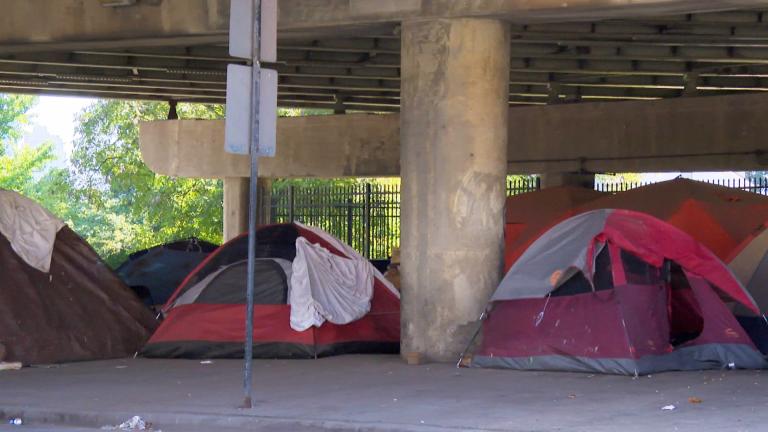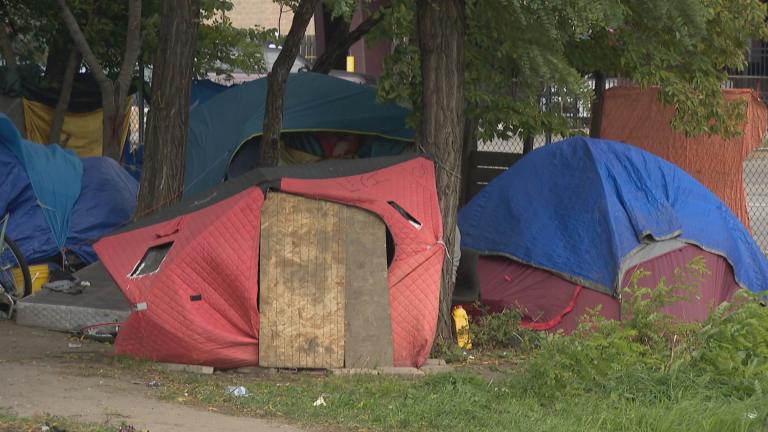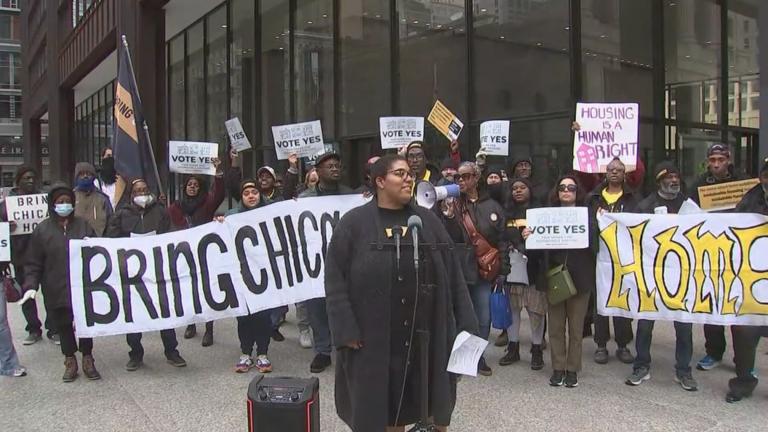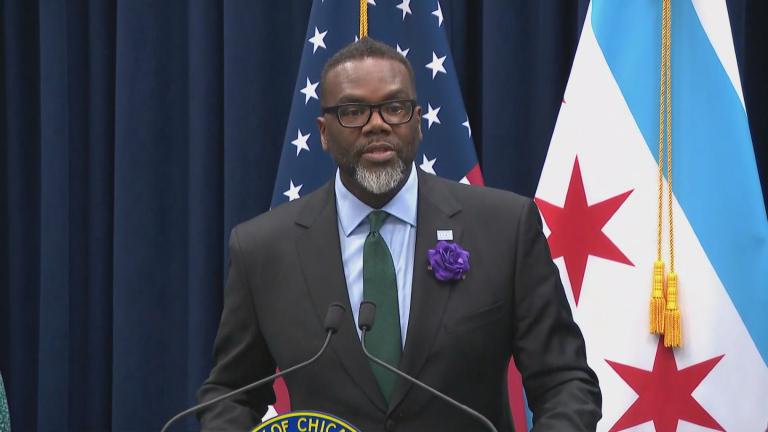Bring Chicago Home proposes a tax hike on some properties to provide permanent housing and wraparound services for homeless people.
In a new report, the Office of Inspector General said a housing-first approach works.
In the report, the office focused in part on Accelerated Moving Events, a program that expedites the process of moving homeless people into housing.
Read More: How Accelerated Moving Events Are Helping Combat Homelessness in Chicago
“Those events are very successful at helping people secure housing, and that housing is quite stable,” said Chicago Inspector General Deborah Witzburg.
The audit of the city’s Department of Family and Support Services found 94% of participants found an apartment, with nearly 79% of participants still housed five months later.
The push for the Bring Chicago Home proposal comes as the Chicago Coalition for the Homeless found an estimated 68,440 people experienced homelessness in the city in 2021. That’s a 2,829-person increase from the previous year.
Of the people experiencing homelessness, 82% are people of color. Black Chicagoans account for 53% of the total count, according to the report.
The number is tens of thousands of people higher than the city’s annual point-in-time count because of how the Chicago Coalition for the Homeless defines homelessness, said Julie Dworkin, director of policy for the organization.
For example, the 2021 point-in-time estimate from the city was 4,447 people experiencing homelessness. That figure doesn’t include doubling-up in shared living arrangements, Dworkin said. However, doubling-up is the way most people experience homelessness in Chicago, according to the report.
“In order to quantify the problem, like we think is the full scope of the problem, we developed (our own) methodology,” she added.
Dworkin said this larger picture of homelessness can be used for locally dedicated resources.
Many of those resources fall under the Bring Chicago Home proposal, which would hike taxes on the sale of properties worth $1 million or more. It’s estimated the initiative would generate $100 million annually, which supporters said would be enough to build permanent housing and offer wraparound services to fight homelessness.
The proposal would cut the real estate transfer tax paid by Chicagoans who sell residential and commercial properties for less than $1 million by 20%, while hiking taxes on transactions of more than $1 million by as much as 400%.
Marketta Sims, a grassroots leader with the coalition, said the proposal is “intricate and vital” to the homeless sector. She praised it not only for its housing-first approach but also for its focus on wraparound services like substance abuse counseling.
“You have to take that person out of survival mode,” Sims said.
Mayor Brandon Johnson is now attempting to get the proposal on the March 2024 primary ballot. Earlier this month his effort cleared a key hurdle with a public hearing.







